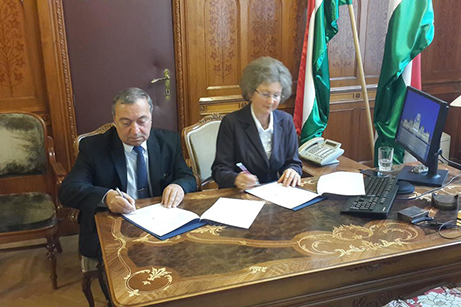Hungary and Georgia forge closer cultural ties

Hungary will be the next country to host a celebration of Georgian culture as part of new efforts to develop closer cultural and educational relations.
Representatives from Parliament of Georgia and Parliament of Hungary met in Budapest this week to discuss possible avenues for closer cultural cooperation. At the meeting, attended by Georgian Member of Parliament (MP) Pridon Sakvarelidze, the sides raised the idea to hold a Days of Georgian Culture celebration in Hungary, as other Eastern European nations have already done.
Sakvarelidze, Parliament’s Education, Science and Culture Committee member, is on an official visit to Hungary on November 16 and 17.
Sakvarelidze’s principal meeting of his visit, with the Hungarian Parliament’s Deputy Speaker Sándor Lezsák, resulted in Hungary committing to host a range of events and a full-scale Days of Georgian Culture where all things Georgia will be presented to the people of Hungary.
The proposed plans included Georgian language events and visits of Georgian writers to a public school in Lakitelek town in Hungary’s south, under the auspices of Lezsák who also oversees education and culture affairs at the country’s parliament.
No dates for the Days of Georgian Culture celebration in Hungary were announced.
Another result of the official meeting was signing of a Memorandum of Cooperation between the Georgian Parliament’s National Library and the library of the Hungarian city Kiskunfélegyháza. Furthermore, the two countries’ parliamentary libraries will also cooperate on cross-cultural affairs.
Following the meetings Sakvarelidze and Georgia’s Ambassador to Hungary Zaza Kandelaki toured the Georgian book corner at the Hungarian Parliament’s Library.
Days of Georgian Culture have been held over the recent years in Eastern and Western European states including Poland, the United Kingdom and Lithuania.
 Tweet
Tweet  Share
Share